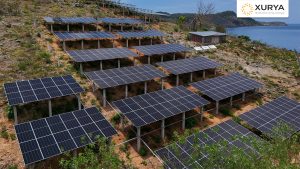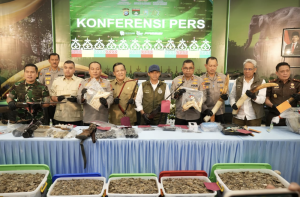Jakarta—Renewable energy projects in Indonesia have great potential to create new jobs and attract large amounts of investment, especially in coal-producing regions such as East Kalimantan, South Kalimantan, and South Sumatra. According to a recent report by EMBER, a global energy research organisation, these projects are projected to create up to 96,000 jobs and attract USD 9.4 billion in investment by 2030.
EMBER’s report, “Indonesia’s Expansion of Clean Power can Spur Growth and Equality,” analyzes PT PLN’s (Persero) 2021-2030 Electricity Supply Business Plan (RUPTL) and the Just Energy Transition Partnership’s (JETP) Comprehensive Investment and Policy Plan (CIPP). The report highlights how the energy transition can be more equitable if the focus is on renewable energy development in areas dependent on the coal industry.
“Indonesia’s energy transition can be more equitable by utilizing coal sustainably and shifting the focus to renewable energy projects in affected areas, thus creating new job opportunities, improving community competencies, and regional competitiveness,” said Dinita Setyawati, EMBER’s Senior Southeast Asia Electricity Policy Analyst, Monday, August 19.
Based on the existing RUPTL, renewable energy projects with a total capacity of 21 gigawatts (GW) will be added until 2030. In addition, within the framework of the JETP CIPP, this target will increase to 36 GW. EMBER’s analysis shows that the development of 2.7 GW of renewable energy projects in East Kalimantan, South Kalimantan, and South Sumatra could create around 50,000 jobs and attract USD 4.3 billion in investment.
However, even greater benefits could be gained if the planned construction of 2.33 GW of new steam power plants (PLTU) in the three regions is cancelled and replaced with solar power plants (PLTS) with a total capacity of 5.8 GW. This move is estimated to create 46,000 jobs and more than double the investment.
Overall, accelerated renewable energy development in East Kalimantan, South Kalimantan and South Sumatra will unlock more than USD 9.4 billion in investment opportunities and create 96,000 high-skilled jobs. It would also potentially reduce emissions by 18 million tons of CO2e in the three regions, compared to the 30 million tons of CO2e currently generated from coal mines and power plants.
EMBER also warns that Indonesia needs to reconsider building new power plants to avoid the risk of stranded assets. With a projected increase in electricity demand of 4.7 per cent per year based on 2023 data, electricity generation is estimated to exceed demand by 42 terawatt hours (TWh) in 2030. Even without new power plants, Indonesia can still fulfil its electricity needs that year. (Hartatik)















